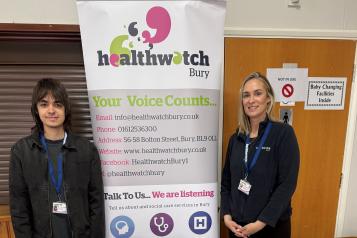Choice in the NHS

The NHS Constitution for England establishes the principles and values of the NHS in England. It sets out:
- rights that patients, the public and staff are entitled to
- pledges that the NHS is committed to achieving
- responsibilities that the public, patients and staff owe to one another to ensure that the NHS operates fairly and effectively
The constitution makes clear that:
you have the right to make choices about the services commissioned by NHS bodies and to information to support these choices”.
It also pledges to “inform you about the healthcare services available to you, locally and nationally” and to “offer you easily accessible, reliable and relevant information in a form you can understand, and support to use it […] to enable you to participate fully in your own healthcare decisions and to support you in making choices.
This framework sets out some of the nationally set choices available to you in the NHS.
It explains:
- when you have choices about your health and care
- where to get more information to help you choose
- how to complain if you are not offered a choice
In some circumstances you have legal rights to choice and you must be given these choices by law. In other circumstances you do not have a legal right to choice but you should be offered choice about your care, depending on what is available locally. This is what the government has asked healthcare professionals to do.
This guidance applies to people of all ages in England.
- Choosing your GP and GP practice
- Choosing where to go for your first appointment as an outpatient
- Asking to change healthcare provider if you have to wait longer than the maximum waiting times
- Choosing maternity services
- Choosing to take part in health research
- Choosing to have a personal health budget
- Choosing to access planned treatment in the EU member states, Norway, Iceland, Liechtenstein or Switzerland
- Getting more information to help you choose
- If you require a reasonable adjustment
Organisations that can help you
The organisations listed below can provide information and support.
Healthwatch
Healthwatch is an independent consumer champion for health and social care in England. It operates as Healthwatch England at national level and as local Healthwatch at local level. It can help you to make a complaint about NHS health and social care services and will be able to provide more information about local services.
Patient Advice and Liaison Service (PALS)
The Patient Advice and Liaison Service (PALS) offers confidential advice, support and information on health-related matters. It provides a point of contact for patients, their families and their carers. You can find PALS officers in your local hospital on the NHS website. PALS can provide information about the NHS complaints procedure, including how to get independent help if you want to make a complaint.
Parliamentary and Health Service Ombudsman
If you’ve made a complaint and it has not been resolved to your satisfaction, you have the right to take your complaint to the independent Parliamentary and Health Service Ombudsman. The ombudsman is the final stage of the complaints system. Find out how to contact the ombudsman in section 11 of this guide, below.


